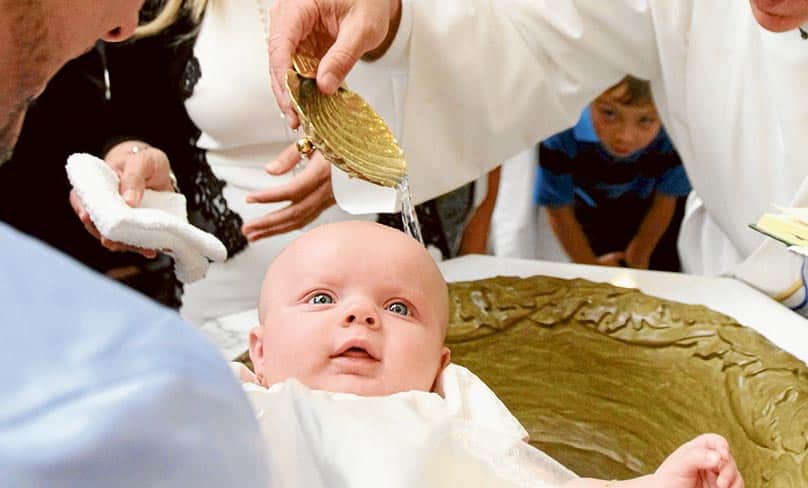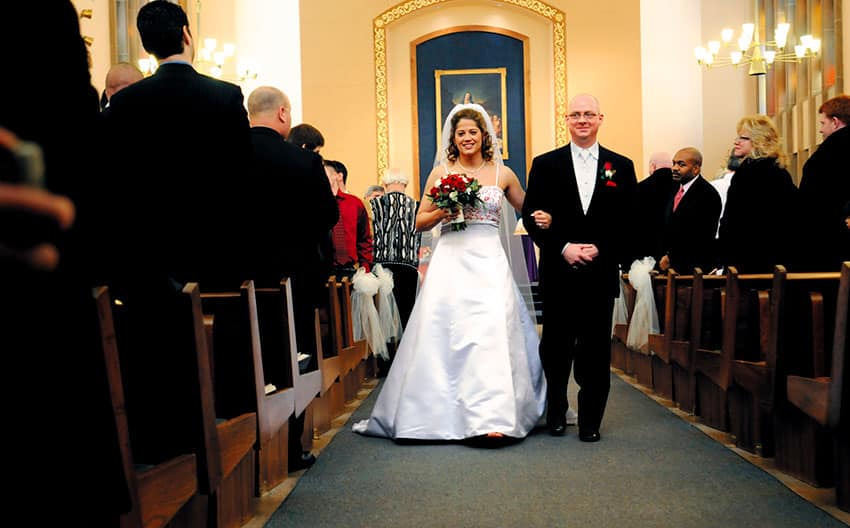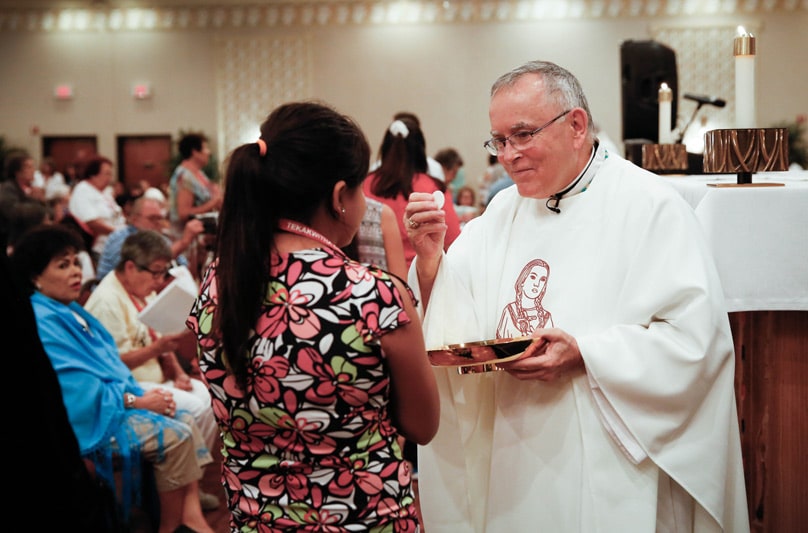
Few noticed it but a key issue at the heart of evangelisation found itself in the spotlight last week when a document published by a little-known Vatican body was made public.
The key was in who ordered its publication: Pope Francis.
The document had a somewhat obscure name: The Reciprocity Between Faith and Sacraments in the Sacramental Economy. It was published by the International Theological Commission (ITC), a body of top theologians and scholars who advise the Pope and the Church.
Despite its somewhat academic character it has big implications for all Catholics as well as the pastoral practice of our parishes. To call it a landmark document would not be putting it too strongly.
While the Catholic media focused on what the document had to say about marriage, specifically the sacramental status of a marriage between two “baptised non-believers”, the ITC acknowledged its discussion of the relationship between faith and sacraments had much broader implications.
This includes for we Australians. While the number of marriages in our Church has declined sharply over the years, the number of families and children who continue to seek the Sacraments of Initiation in our parishes remain substantial, in their many thousands.
Such demand seems like good news. But like the movement of quicksand, the longer we watch of this sacramental journey, the more likely we are to experience a sinking feeling as the promised fruits of these sacramental encounters struggle to manifest themselves in the real lives, desires and commitments of recipients.
To put it plainly, despite the potent grace of the sacraments and numbers seeking them, we are not seeing a blossoming of committed disciples.
We do not see, as Fr James Mallon describes, a deluge of Catholics with a personal relationship with Jesus, who are actively sharing their faith with others, open to the gifts of the Holy Spirit, with knowledge and love of the Scriptures, and of basic Catholic theology, with a daily prayer life, the experience of real Christian community, a commitment to Sunday Eucharist and the frequent practice of Reconciliation, and who serve in ministry while seeing their lives as a mission field.
So what explains this phenomenon which sees thousands ‘sacramentalised’ but few appearing to be ‘evangelised’, that is, become intentional and life-long disciples of Jesus Christ?
It can’t be a deficiency of the sacraments in which we encounter the power and presence of Christ himself.

The ITC answers this question with explosive clarity: our Church holds that without a personal faith – yes, a personal relationship with Jesus – the sacraments fail to bear their full fruit. As St John Paul II proclaimed decades ago, “It is necessary to awaken again in believers a full relationship with Christ, mankind’s only Saviour. Only from a personal relationship with Jesus can an effective evangelisation develop.”
Without this personal faith, the ITC document affirms that the sacraments are likely to appear only as an external symbol or an empty rite – or even risk “slipping into a magical gesture” (57).
The sacraments nourish a life of faith in Jesus Christ. However – and significantly – they are not meant to replace it. They are given to us to grow in the life and mission of Christ.
But for some, it is what they do instead of grow. Without personal faith, a culture of “sacramental automatism” (69) can develop, a purely ‘outward faith’ bereft of understanding and prayer, with dire consequences for the spiritual vitality and mission of our faith communities and for the salvation of those who receive (1 Cor. 11:29).
Rather than an expression of “elitist sacramental scepticism” (181), the need to raise and talk about the personal faith of those receiving the sacraments arises from the pastoral concern and experience of pastors and parish leaders ‘on the ground’.
The ITC recognises “not infrequently pastoral agents receive the request for the reception of the sacraments with great doubts about the faith intention of those who demand them” (9).
These doubts are reasonable given the largely secularised social environment in which we now live, in which even the possibility of a personal relationship with God or a commitment to a dedicated Christian life, including its moral demands, is given little credence or is not even desired, even by parents who seek the sacraments for their children.
We know that reception of the sacraments can be treated as a mere social custom, a family tradition practiced without intention.
Whether it is driven by a desire for enrolment in Catholic schools, a bending to family pressure or social conformity, thousands continue to seek out sacraments in our parishes – but little else.
Not only this, but the mixed motivations behind the demand for Baptism can be known, accepted or even encouraged by our silence on the matter. If this pattern persists, we risk nothing less than “a ritualism devoid of faith” (9).
Despite the doubts held about the personal faith and discipleship of those who present for the sacraments, in practice we have often simply assumed that the sacraments will ‘take care of it’.

The upshot has been a neglect of our duty to awaken in each person that active and personal faith, that fertile soil, in which the grace of the sacraments can actually take root and bear fruit. It is this complacency that this new document decries.
Unless people come to faith, come to relationship with Jesus Christ, the likelihood that the sacraments will bear the fruit they are intended to bear is severely diminished.
Our Catholic tradition, echoed by St Thomas Aquinas, makes a distinction between the ‘virtue of faith’ (virtus fidei) which is a capacity to believe that is placed within us by Baptism, and the actus fidei, the explicit personal act of faith that is at the heart of discipleship, a ‘yes’ to that which has been given.
We might fill our cars with fuel, but without turning on the ignition they will not make any progress.
In Australian parishes there is no lack of those who have been ‘done’ but not discipled, those who have been baptised but have never performed a personal act of faith, involving their understanding and will.
This is not to say the efficacy of the sacraments depends on the one who receives. Baptism, for instance, confers a real “sacramental character” as God’s grace is truly given.
But what Baptism places within us is a capacity to believe. It cannot be a substitute for an active response, the ‘act of faith’ on the part of the graced subject.
A sacrament can be valid but for it to be fruitful, it must be received in faith for “God makes the acceptance of this gift dependent on the cooperation of the recipients” (32). As St Augustine put it, God ‘did not will to save us without us’.
The Reciprocity Between Faith and Sacraments in the Sacramental Economy is a landmark document for all of us: pastors, sacramental coordinators, RCIA teams and those in our parishes hard at work seeking to facilitate the personal conversion of the baptised and the evangelisation of those who do not yet belong to our faith.
A new evangelisation calls us to nourish a Catholic faith by the bold proclamation of the kerygma, the incarnation, passion and resurrection of Jesus Christ who is “the author and perfecter of our faith” (Hebrews 12:2).
This is the faith of our Church that the sacraments nourish.
Related:
